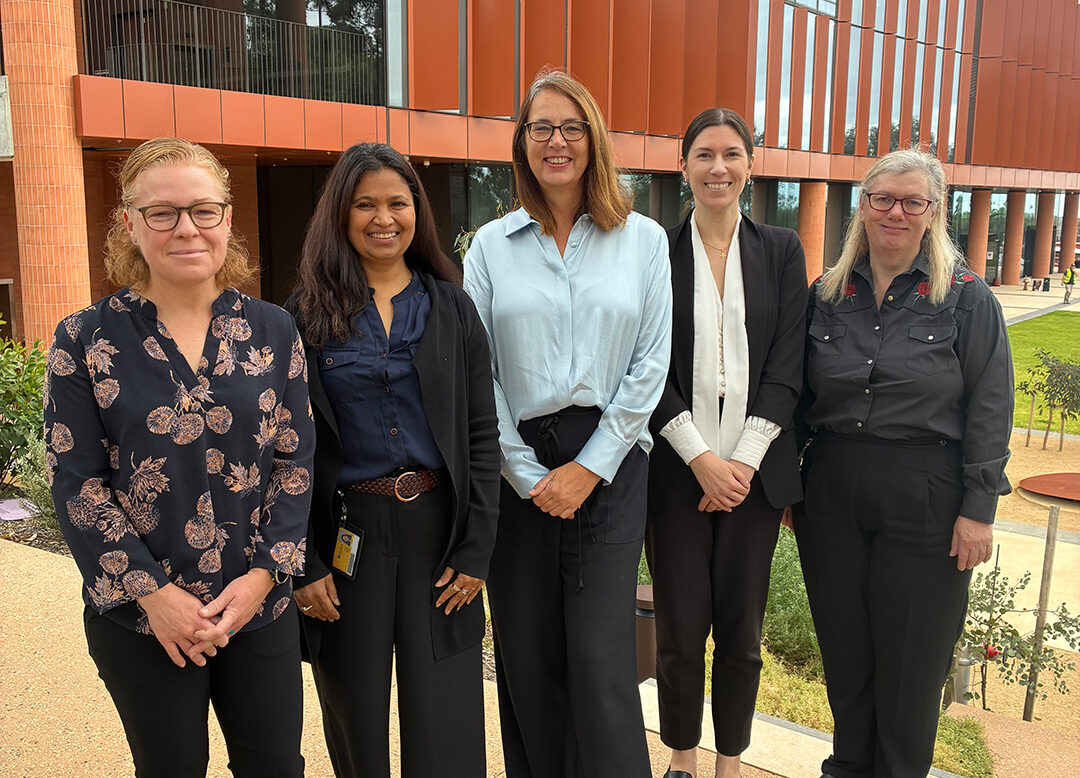
Behind every new medicine, device, or treatment that improves lives is a clinical trial — and at Flinders, the Clinical Trials Unit plays a key role in making them happen. Based within the College of Medicine and Public Health, this expert team supports researchers from across the University and beyond to design, run, and analyse rigorous, impactful trials.
In celebration of International Clinical Trials Day (20 May), we sat down with the team to talk about what they do, why clinical trials matter, and a few things you might not know about the work that powers real-world health outcomes.
What does your team do? We help Flinders researchers across all colleges (plus external research groups, and industry) with the design, conduct and analysis of research, with a particular focus on randomised controlled clinical trials. “RCTs” are typically used to determine whether an intervention (e.g., a medicine, a device, behavioural support, a test, a process, etc), is at least as good as or better than usual practice or another intervention.
Why are clinical trials important? No research design is perfect, and some designs have more bias than others. Well designed and conducted RCTs minimise bias, which is why they are considered a ‘gold standard’. Given the low risk of bias with trials, their findings are important for informing guidelines, clinical practice, health policy or funding decisions.
What’s something people might not realise about running or supporting clinical trials? Paperwork! Trials require a lot of documents, and they need to conform to national and international standards. These documents help ensure a trial is of high quality and more importantly – reproducible. But don’t panic – our team is here to ensure that researchers have all the right documents and use them at the right times.
What does International Clinical Trials Day mean to your team? The day is an opportunity to raise awareness of clinical trials, and the important role they play in policy decision-making (e.g. If a trial determines that a new medicine works, is cost-effective and safe, the medicine may become widely available for consumers). The day celebrates what is seen as the first-ever clinical trial ever undertaken (in 1747!), which discovered that citrus fruit could prevent and cure scurvy in sailors. We’re glad we weren’t randomised to the sea water or sulphuric acid groups of the trial!

